18 Most Popular Tax Deductions
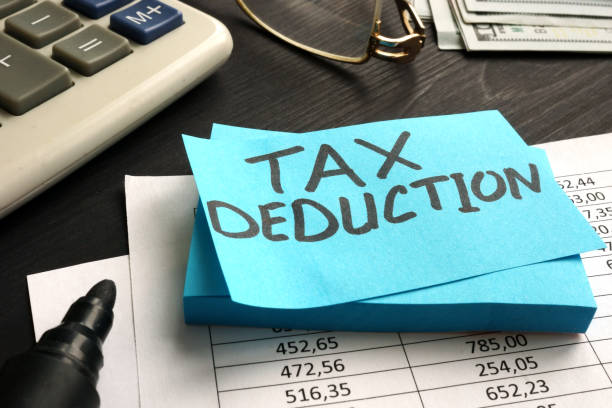
Tax deductions exist to reduce the amount of your income that's subjected to state and federal taxes. So while preparing what you need to file each tax year, you should also consider how to save more money.
There are numerous tax deductions, and we will discuss in this article today the most popular tax deductions you should know about to help you lower your taxable income.
The two main types of tax deductions are standard and itemized deductions. And while the standard deduction is easy and doesn't require much effort on your part, an itemized deduction is more labor-intensive and needs you to keep track of receipts. However, it has its perks too.
The ideal one for you is the one that lowers tax bills. However, if you wish to take advantage of this list's most popular tax deductions, you will need to opt for itemized deductions.
Tax Write-offs For Self-Employed
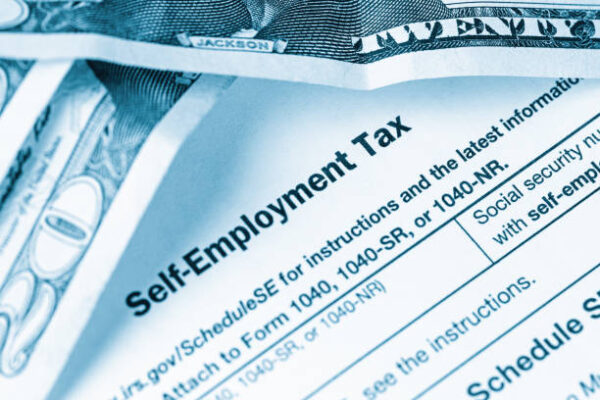
There are quite a several tax write-offs for the self-employed that could result in substantial tax savings for you as a self-employed individual.
Some of these tax write-offs include educational expenses deduction, automobile expenses deduction, individual retirement plans, and business-related travel expenses deduction.
What Deductions Can I Claim Without Receipts?
Attempting to claim tax deductions without possessing receipts is quite risky, but it's also possible. For example, you can claim deductions on work-related petrol usage with a log book, work-related car expenses, and home office expenses.
What Can I Claim On Tax Without Receipt?
Suppose you lose receipts for any tax-deductible expenses, or probably, it's not possible to get receipts for certain claims this tax year. In that case, you can use other acceptable records like canceled checks, written records, photographs, calendar notation, and credit or debit card statements.
But the best thing here is to have the original receipt to avoid any hassle. So, it would help if you track and keep your expense receipts.
Tax Deductible Expenses List
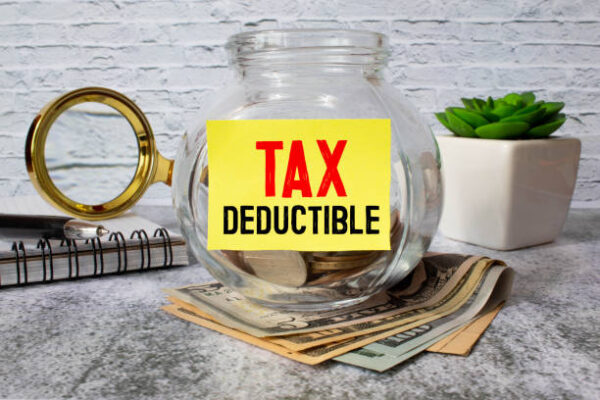
Listed below are some tax-deductible expenses:
- Business expenses.
- Work-related education expenses.
- Standard deduction.
- Itemized deductions.
- Charitable contributions.
- Home mortgage interest.
- Gambling losses.
- Student loan interest.
- Mental and dental expenses.
- Individual Retirement Arrangements (IRAs).
18 Most Popular Tax Deductions.
Below are itemized tax deductions that you'll find hugely popular and suitable choices for individuals. They include:
- Health Savings Account Deduction
A Health Savings Account (HSA) is tax-advantaged savings account only available if you're enrolled in a high-deductible plan. It is among the most popular tax deductions available. The money you deposit into an HSA is not subjected to federal income tax at the time you made the deposit. And if you don't touch the money, the HSA fund will accumulate annually.
The fund may be used to cater for the eligible medical expenses when the need arises, and all the funds you take are tax-free. Some other benefit you could enjoy from this account is that the contributions you make to the account through payroll deductions may be excluded from your gross income. In addition, some HSAs allow you to invest your contributions or earn interest on your balances, and all these earnings are zero tax.
- State And Local Taxes Deduction
The State and Local tax deduction is pretty popular and permits you to deduct some of the taxes returned to the state and local government as a taxpayer who itemizes when filing federal taxes. If you itemize, you may get to deduct up to $10,000 of sales, property, and income tax.
This tax deduction exists to relieve some federal taxpayers of some of their liabilities. The state and local tax deductions primarily benefit high-income taxpayers that are based in states with high tax rates.
Claiming this deduction on your federal income taxes isn't too complicated. All you need to do is itemize your deductions and decide if you're deducting the sales or state income tax, as you can deduct both. And then, you are free to claim the deduction.
- Standard Deduction
Standard deduction refers to the portion of your income that's not subjected to tax. This tax deduction helps to protect a portion of your income from federal income tax to help you minimize your tax bill. Your standard deduction amount depends on factors like age, status, whether you're disabled, or your claim as a dependent on somebody else's tax returns and other factors.
The Internal Revenue Service (IRS) is responsible for adjusting the standard deductions each year after inflation. Many people opt for standard deductions instead of itemized deductions as it is much easier, and they don't have to keep track of all possible eligible expenses.
It would be best if you also kept in mind that it is not everyone that qualifies for standard deductions. For example, you can claim one if you're a non-citizen or dual-status alien during the year or if you're married and filing separately, but your partner itemizes their deductions.
This year, the standard deduction is $12,950 for filing taxpayers separately, however single or married. The standard deduction is $19,400 for the head of households and $25,900 for married individuals filing jointly or qualifying widow or widower taxpayers.
- Self Employment Tax Deduction
The self-employment tax deduction is for you if you have your own business, are a freelancer, or work as an independent contractor. However, the fact that you're no longer an employee doesn't mean you are free from tax, and you will need to pay tax as long as your net self-employment income is up to $400 or more.
You shouldn't be surprised that you will be paying much more self-employed individuals than you were as an employee. This is because there's no longer an employer to share some tax burdens with.
However, the good news is that the IRS allows you to claim 50% of what you pay in self-income tax as an income tax deduction. So this will help you reduce your tax bill even when you start your own business.
- IRA Contributions Deduction
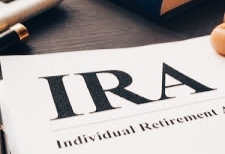
The IRA contributions deduction is another popular tax deduction. Donations to a traditional IRA are tax deductible only if you qualify, but contributions to a Roth IRA are not. You qualify for an IRA contributions deduction if you are married. But, if you and your spouse don't have a retirement plan at work, you can qualify to request a deduction on your tax return for the contributions.
You can also claim a tax deduction on IRA contributions if you're married and have a retirement plan. However, this will depend on whether your income is above the traditional IRA income limits because the income limit changes yearly due to IRS inflation adjustments.
You can still make contributions into your IRA account even if it is non-tax deductible as long as your money grows tax deferred.
- Start-Up Expenses Deduction
One of the common ways to lower your tax bill is to deduct the start-up cost expenses from your small business revenue. This is because the IRS allows you as a business owner to enjoy certain tax benefits for establishing, launching, and setting up a business.
You can't claim this deduction if you've not started the business or if you started it and it doesn't take off.
Specific limits are applied to business start-up cost deductions. First, the costs incurred during the start-up phase of a business are capped at a $5,000 deduction in the first year. That is if your cost is $50,000 or less. If it exceeds this amount, the amount over $50,000 reduces your first-year deduction. What's more? The deduction can be removed entirely if the amount exceeds $55,000.
- Medical Expenses Deduction
Another popular tax deduction is the medical expenses deduction. Medical expenses can increase quickly, especially if you, your partner, or any of your dependents have costly medical bills. But keeping receipts and itemizing your deductions will save you a lot regarding tax time.
This tax deduction makes it easy for you to claim medical expenses that aren't covered by insurance as deductions on your tax returns. Some eligible expenses include prescriptions, hospital stays, doctor appointments, hotel stays for medical visits, special diets, acupuncture, health insurance premiums that aren't deducted in pretax dollars from your income, and other alternative treatments.
The Internal Revenue Service (IRS) also gives room for a wide range of costs that may not match any of the above categories to help you reduce tax bills. It also helps that the medical expenses don't necessarily have to be yours; they could be a spouse, a relative, or a qualifying child.
- Gambling Loss Deduction
The gambling loss deduction is another standard tax deduction. Gambling losses are tax-deductible to the extent of your winning and require you to report all winnings as taxable income in your return. You only benefit from this deduction if you itemize your deductions.
In addition, you also need to keep track of losses and winnings you accumulate to deduct losses from wins. Losing money by gambling doesn't automatically reduce your tax bill, but you will need to work things through yourself actively. Another thing you should know about this tax deduction is that the number of gambling losses you can deduct can never surpass the winnings reported as income.
- Medical And Dental Expenses Deduction
The Medical and dental expenses deduction helps to minimize the federal tax to be paid by deducting medical and dental costs from your taxable income. You can file deduction claims on the cost of diagnosis, cure, and treatment of any diseases affecting the function of your body.
It would be best if you were a taxpayer that itemizes deductions on tax returns and has the receipts of your medical and dental expenses to be eligible for this deduction. This tax year, you can deduct qualified and unreimbursed medical and dental expenses more than 7.5% of your adjusted gross income.
- Work-Related Educational Expenses
Whether you're self-employed, disabled, armed forces reservist, qualified to perform artist or fee-based, or state or local government official, you may be able to deduct the work-related educational expenses.
For the expenses to be deducted, it must be for education to improve your skills in your present work or the job your employer or the law requires you to keep your current job or salary.
Expenses that you can deduct include the cost of research, transport, action, and travel related to education, tuition, books, and other educational work-related expenditures.
- Students Loan Interest Deduction
There's also the student loan interest deduction. It helps you to deduct a portion of your student loan interest if you meet specific criteria. Federal and private student loans are entitled to this deduction as long as you use the borrowed money to cater for you, your spouse, or your dependent educational expenses.
You can't claim a deduction on another person's loan interest unless you're a cosigner or signer. And you're only eligible to claim this deduction if you're filing as single, married, filing jointly, head of household, or qualifying surviving spouse.
You must also satisfy certain income limits to be able to claim this deduction, as the deduction may be limited or eliminated if your income is too high. And to much relief, you also don't have to itemize deductions to claim this tax reduction.
- Self-Employed Health Care Premium
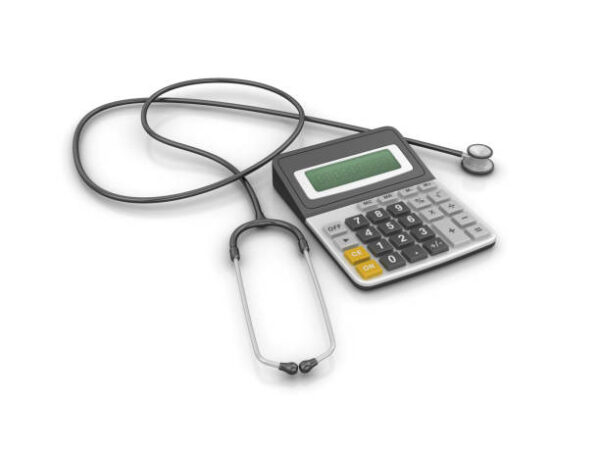
A popular tax deduction for self-employed individuals is the self-employed health care premium. With this tax deduction, you can deduct 100% of the monthly health insurance premiums for yourself, your spouse, and your dependents—no dependent child under 27 years of age.
For a self-employed health care premium tax deduction, the policy must fall into at least one of these categories: dental, medical, or long-term care insurance. You cannot request for this deduction if you are still under an employer. You can, however, if you're self-employed or even if you're in a part-time business.
- Educator Expense Deduction
The educator expense deduction is another popular tax deduction. It is a beneficial above-the-line deduction applied before deciding to go for a standard or itemized deduction.
You can only request for this deduction if you're a teacher who has paid up to $300 of qualified expenses for classroom supplies and related items out of your own money during the tax year. It allows you to reduce your Adjusted Gross Income (AGI), which renders you ineligible for some great tax benefits if it's too high.
However, not everyone or every teacher qualifies to claim this deduction. You can only claim it if you're a teacher, principal, counselor, or aide that has worked at least 900 hours in a school certified by your state during a school year. The school can be a private, public, or religious institution, and it's open to all types of grade and high school educators.
- Mortgage Interest Deduction
The mortgage interest deduction is one popular tax benefit for homeowners. The interest deduction allows you, as a homeowner, to keep track of the interest you pay on a loan. For example, the loan could be related to purchasing, building, or renovating your home. This is done to lower the amount of taxes to be paid by the amount of money you have reimbursed in mortgage interest during the year.
Aside from your home mortgage interest, a home equity loan interest, mortgage insurance premiums, prepayment penalties, or second home mortgage interest may qualify for this deduction. You can also use this tax deduction after refinancing your home. However, it would be best if you kept in mind that homeowners' insurance, settlements, and interest on a reverse mortgage aren't tax deductible.
- Home Office Deduction
With the home office deduction, small business owners and entrepreneurs working from home can save money on taxes. The IRS gves room for you to write off the associated rents, utilities, repairs, maintenance, and other related expenses. This is true mainly if you use your home or a part of it, be it a studio, garage, or barn, regularly and exclusively for your business-related activities.
Whether you rent or acquire your home or any type of home you reside in, you can claim this tax deduction as long as you're using it for business activities. However, you should also know that using the space in your home for business and simultaneously for living can cause you to be ineligible for this deduction. For example, say you're using a spare bedroom in your home as an office and playroom or anything that's not business related.
To request a home office deduction, you need to know the percentage of your home you use for your business activities, utilities, depreciation, and repairs.
- Qualified Business Income Deduction
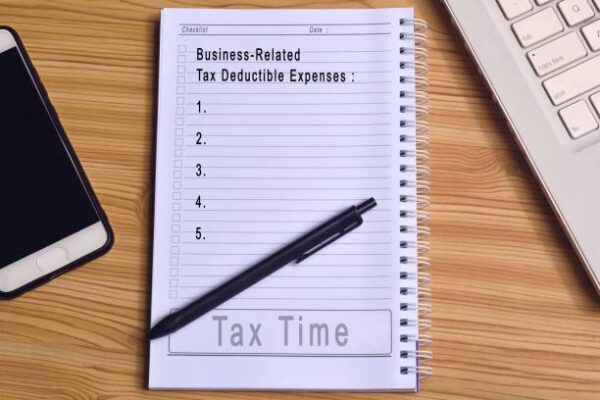
The qualified business income deduction is a popular tax deduction for business owners. You simply qualify for this deduction by the nature of your business and its income.
It is a personal deduction restricted to only owners of pass-through entities, which include sole proprietorships and independent contractors, partnerships, limited liability companies, and S-corporations.
This deduction is up to 20% of Qualified Business Income (QBI). You can claim this write-off whether you take itemized or standard deduction.
- Work-Related Travel Expenses
This is another popular tax deduction partly because all the expenses ranging from hotel stays, flights, meals, rented vehicles, and other related costs incurred while traveling for business purposes, can be written off.
But for work-related travel to qualify for this deduction, it must be a trip away from where you conduct your business, and the journey must take you more than a work day and require you to sleep or rest on the route.
https://paypant.com/18-most-popular-tax-deductions/
Comments
Post a Comment